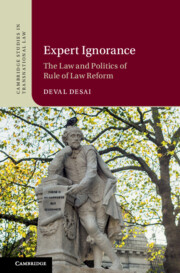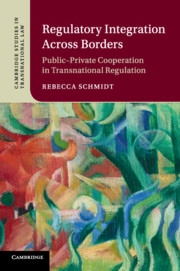2 results in Cambridge Studies in Transnational Law

Expert Ignorance
- The Law and Politics of Rule of Law Reform
-
- Published online:
- 08 June 2023
- Print publication:
- 22 June 2023
-
- Book
-
- You have access
- Open access
- Export citation

Regulatory Integration Across Borders
- Public–Private Cooperation in Transnational Regulation
-
- Published online:
- 03 December 2018
- Print publication:
- 06 December 2018

